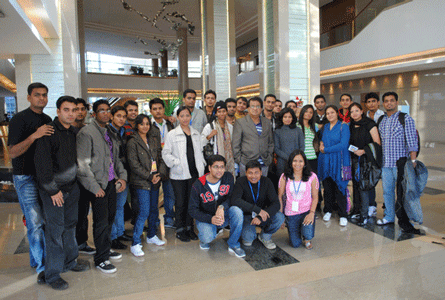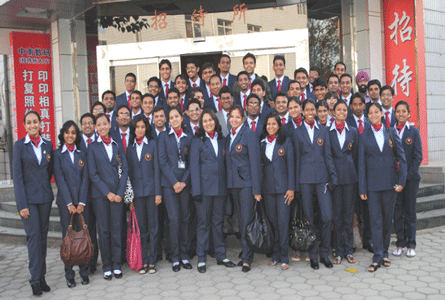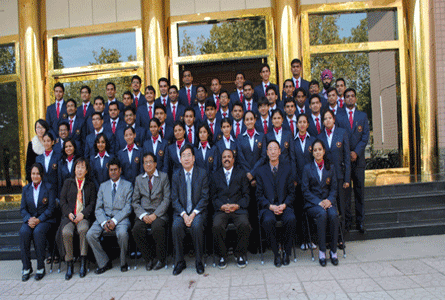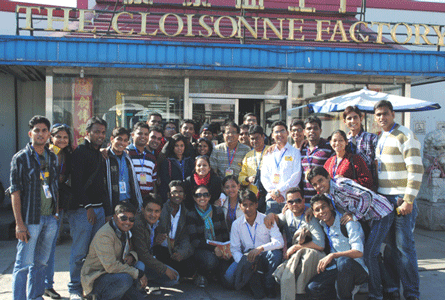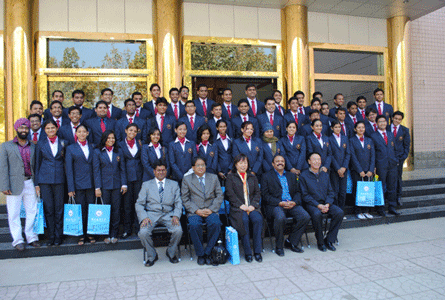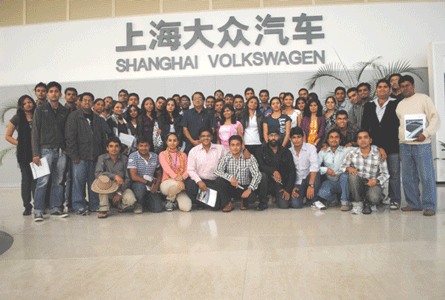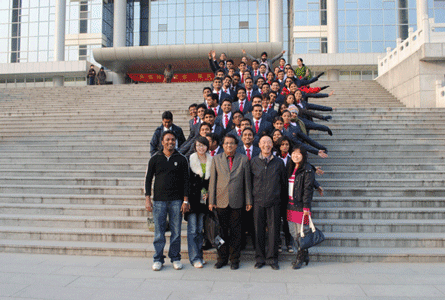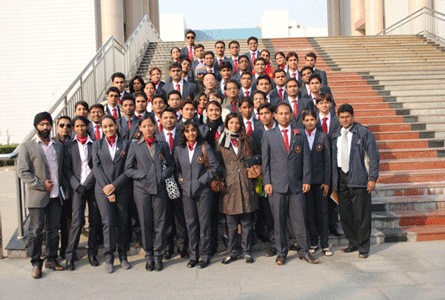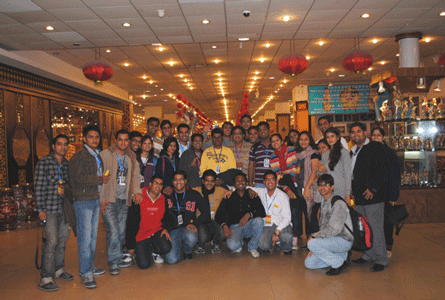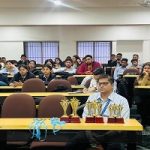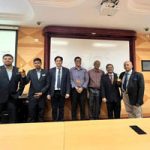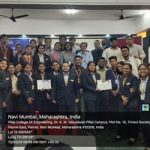PGDM Students visit to China 29th October – 6th November, 2010
Study tour is regarded as invaluable learning experiences that enhance business degree studies, especially PGDM degree and benefit students in many ways. Having chances to learn from overseas study tour provide students an international perspective on business by exposure to the different factors business has to address in their particular environment. It provides us firsthand experience with men and matters in different culture and real site context.
Date
29th October to 6th November, 2010
Conducted by Pillai Institute of Management, China study tour gave us a chance to mingle freely with other students in Hebei University of Economics and Business, Shijiazhuang; interview, learn and question with executives and staffs in Blue Enamel Factory, Shijiazhuang Textile Factory, North China Pharmaceutical company and Shanghai Volkswagen. We also felt free with teachers who accompanied us.
Overview of the study tour experiences
During our 9 days study tour in China, we gained a deeper understanding of Chinese culture, Chinese educational and economical environment. Based on the purpose and based on the itinerary, we divided China study tour into 3 kinds of visit : Universities visit, Enterprises visit, and real-life experiences visit.
Hebei University Visit
Hebei University of Economics and Business is a University in Hebei, China under the provincial government. It is located in Shijiazhuang, the capital of Hebei Province, P.R.China. It has four campuses.
After exchanging short introduction of 2 universities – Hebei and PBS – we joined a lecture from Dean of Hebei University of Economics and Business. His speech of “Chinese Business Practices” gave us a deeper view of challenges and opportunities that most of Chinese firms are facing to and some suggestions to help them overcome the impact of global financial crisis. Also, it gave an insight on the differences of business practices in India and China. We interacted with students of Hebei University and get to know the education system prevailing in the country.
Enterprises Visit
Besides having interactions with university in China, we also had some experiential learning from 4 enterprises visit including Blue Enamel Factory, Shijiazhuang Textile Factory, North China Pharmaceutical Company and Shanghai Volkswagen.
Shopping Study Exercise
In this China study tour, we also had many chances to go shopping and applied bargaining skills. In Beijing, Shijiazhuang and Shanghai, shopping was not an activity, it was an experience.
Conclusions – Learning Outcome
After discussing in our group, a number of learning outcomes can be directly attributed to China study tour as they relate to Business Practices of International Enterprises as follow:
First, we all learned to interact and communicate in a cross-cultural international setting with universities’ professors and PGDM students, and business constituents. Our meetings included discussions with:
- Professors and students in Hebei University, Shijiazhuang
- Staffs of Blue Enamel Factory, Shijiazhuang Textile Factory, North China Pharmaceutical Company and Shanghai Volkswagen.
From these meetings, we developed valuable contacts, learned to ask the right questions and be active listeners, and gleaned much information about doing business in China.
Second, we – PGDM students – developed intimate knowledge, both tacit and explicit, of a foreign market, namely China. Before going to China, we spent time to search and write up a summary of the Chinese economy and culture to get ready for a successful China study tour. It then became intimate knowledge of Chinese market when we experienced in learning, visiting and shopping in China. For example, the trip allowed all PGDM students to visit various cultural attractions such as some monuments, city tours, outings, shopping streets, etc. In several instances, interactions with locals have provided insight to the Chinese culture from the standpoint of foreign nationals. Such eye opening experiences are invaluable in developing an understanding of China.

